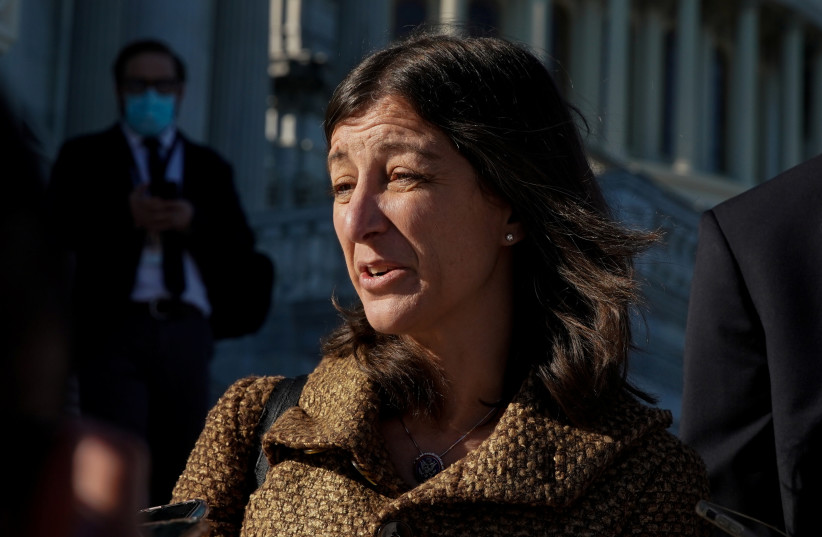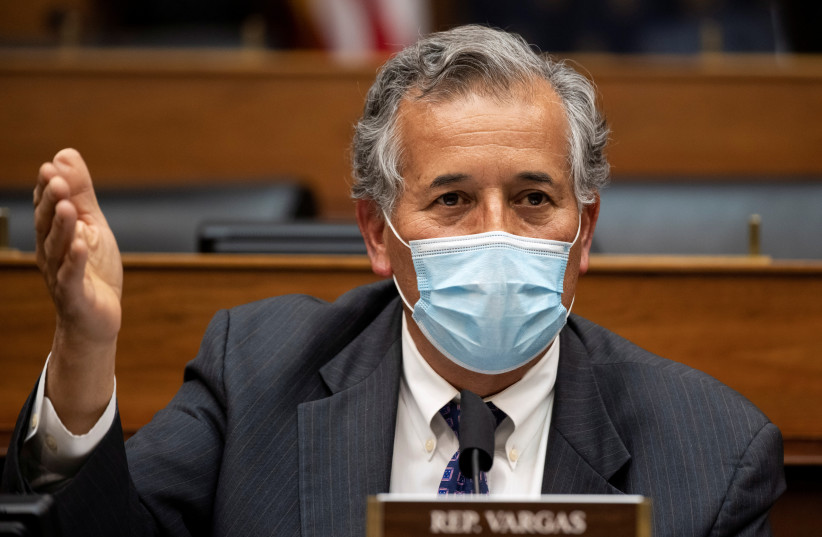WASHINGTON – Secretary of State Antony Blinken said on Wednesday that he is not “overly optimistic” at the prospects of bringing the nuclear agreement with Iran to a conclusion. In an interview with MSNBC he said, “Despite all the efforts we put into it, we’re not there and time is getting extremely short, but this is something that we will be talking to our European partners about this afternoon and on the next day.”
He added, “I continue to believe that it would be in the best interest of our country if we can back into compliance with the deal if Iran would do the same – we are not there.” Asked whether the IRGC is a terrorist organization, Blinken said, “They are.”
Earlier on Wednesday, a group of five House Democrats held a press conference to express concerns over the prospects of reviving the 2015 nuclear agreement with Iran. Rep. Josh Gottheimer (D-New Jersey) noted that while five members attended the press conference, some 15 House Democrats shared concerns over the deal. The group is expected to release a joint statement later.
Rep. Elaine Luria (D-Virginia) said, “While the recent negotiations have not concluded, we feel that we can’t stay quiet.” She went on to say that Iran is “dangerously close” to obtaining nuclear weapons capability, and that the Islamic Republic showed “no end in sight to the pursuit of a nuclear weapon.”
“I believe that it’s just clear evidence that the JCPOA did not work and that any new deal that does not wholly prevent Iran from ever acquiring a nuclear weapon is unacceptable,” Luria continued. “I have serious concerns about reports that negotiators in Vienna are discussing lifting of sanctions designed not just to address Iran’s nuclear activities, but even those addressing [the IRGC’s] sponsorship of terrorism.”

She added that it is “completely unacceptable” that this would be considered as part of this negotiation. Luria said the leadership of the Iranian regime “has perpetuated terrorist attacks around the world, targets its own people and has sought to destabilize the Middle East. The JCPOA that’s currently being negotiated will provide Iran with more resources to do exactly these things.”
Gottheimer said the US needs “a longer and stronger deal, not one that is shorter and weaker.”
“It’s critical that we do not cave to demands from Iran, the leading state sponsor of terror,” he said. “We must not loosen non-nuclear sanctions, including the key safeguards against the IRGC. If Iran has proven anything, it is that they can’t be trusted.
“We can’t gamble with American lives and remove the formal foreign terrorist organization or destination,” he continued. “[Lifting the] designation of the IRGC will allow billions of dollars to flow through Iran, the IRGC and their terrorist proxies.”
Rep. Juan Vargas (D-California) said, “It was a bad deal then, and it’s a bad deal now.
“Unfortunately, I’m starting to see a few of the same things I saw last time [when] the negotiations that were done somewhat obscurely,” he said. “I don’t know exactly what’s in this deal. I can’t tell you because they haven’t allowed us to look at it. I sit on the committee of jurisdiction. We should be reviewing this now. We should be taking a look at what is in this deal. What is new that makes this deal better?”

J Street’s vice president of policy and strategy Dylan Williams issued a statement saying it was “deeply disappointing to see a handful of House Democrats criticize the president’s important efforts to restore the limits on Iran’s nuclear program that Donald Trump abandoned.”
“The JCPOA nuclear agreement succeeded in blocking Iranian pathways to a nuclear weapon – until Donald Trump made the disastrous decision to break the deal,” said Williams.
